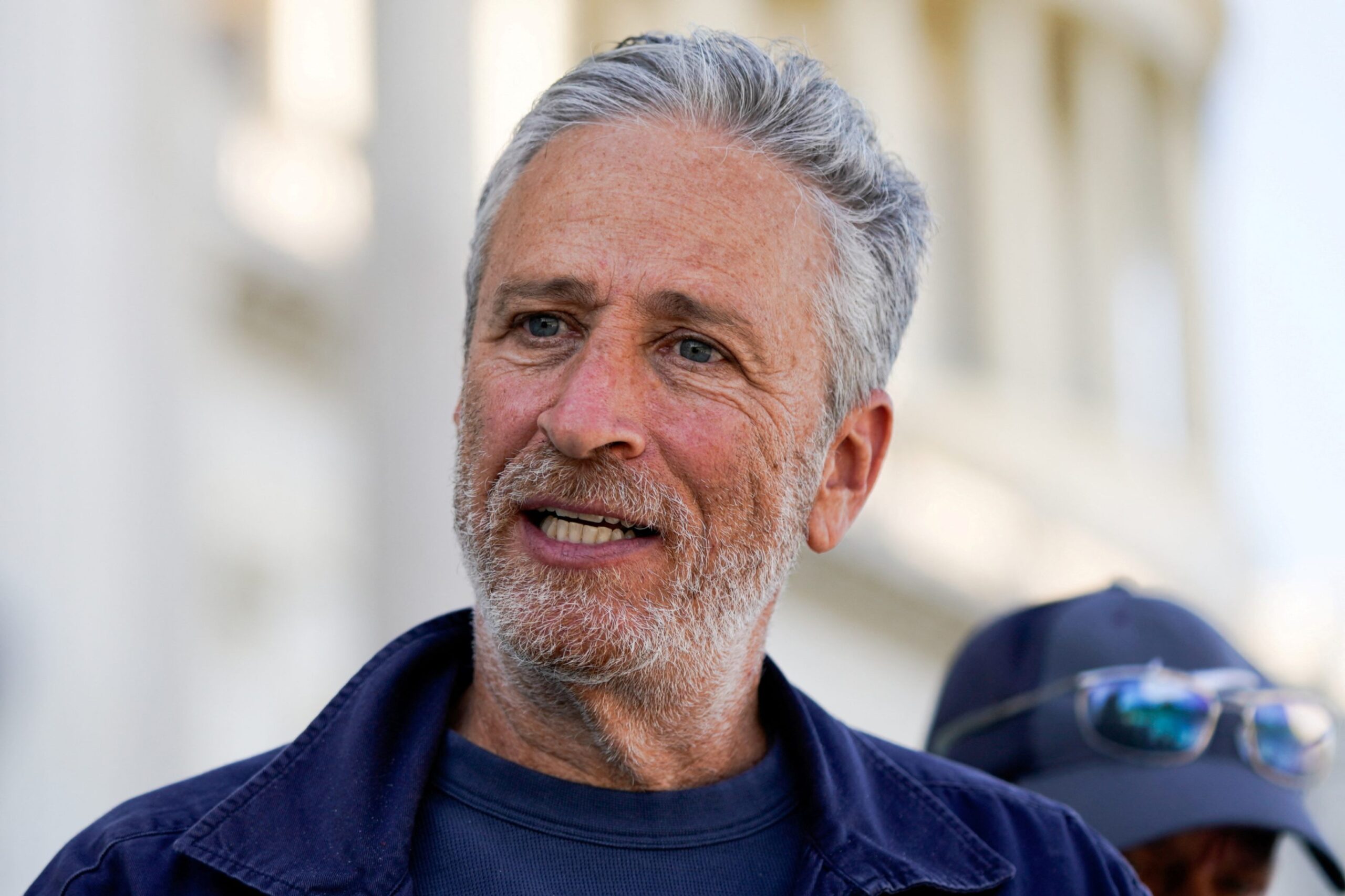Jon Stewart Urges Young Professionals to Follow Their Ideals, Not Just Chase Money
Jon Stewart, legendary comedian, political commentator, and former host of The Daily Show, has spent decades holding a mirror to society, exposing hypocrisy, and challenging people to think critically. Beyond comedy and journalism, Stewart has increasingly spoken about the importance of purpose, ethics, and idealism—not just in politics or activism, but in the choices people make for their careers.
In a world where young professionals often feel pressure to chase prestige, status, or salary above all else, Stewart has become a vocal advocate for choosing work that aligns with personal values and societal impact. Drawing inspiration from thought leaders like Rutger Bregman, author of Moral Ambition, Stewart warns against falling into what Bregman calls the “Bermuda Triangle of talent”—industries like finance, consulting, or other high-paying yet often soul-draining fields where young talent can feel trapped, overworked, and creatively stifled.

“Too many people spend the first decade of their careers just trying to impress other people or pad their resumes,” Stewart said during a recent talk. “But the work that truly matters—the work that can change your life and the lives of others—comes from following what you care about, what you actually believe in.”
Stewart’s message is clear: idealism in career choices is not a naïve luxury. It is a vital compass for long-term fulfillment. He emphasizes that pursuing purpose-driven work doesn’t necessarily mean giving up on financial stability—it means finding ways to integrate passion, ethics, and talent into a career path that aligns with one’s values.
The “Bermuda Triangle of Talent”
Stewart warns that the so-called “Bermuda Triangle of talent” is particularly dangerous because it seduces young professionals with status, money, and social approval. Many graduate from top universities and enter finance, consulting, or corporate law, believing they are making smart, strategic choices. But once inside, they often find themselves overworked, stressed, and disconnected from the deeper purpose that initially motivated them.
“These fields aren’t inherently bad,” Stewart explains. “But when people choose them out of fear, obligation, or societal expectation rather than genuine interest, talent gets lost, creativity dies, and people start questioning what they’re doing with their lives. That’s when the triangle swallows them whole.”

Instead, Stewart encourages young professionals to step back and ask themselves: What matters most to me? What problem do I want to solve? What legacy do I want to leave behind? He stresses that idealism, far from being impractical, can actually guide people toward careers that are both meaningful and impactful.
Lessons from Stewart’s Career
Jon Stewart’s own career is a testament to the power of aligning work with values. While he achieved fame and financial success through comedy, his focus was always on truth-telling, social impact, and holding power accountable. Through decades on The Daily Show, Stewart demonstrated that work can be entertaining, socially significant, and morally guided. He used humor as a tool for education and activism, proving that following your ideals doesn’t mean sacrificing influence or achievement—it can amplify it.
Stewart has also leveraged his platform for causes outside the entertainment world. From advocating for 9/11 first responders to highlighting issues of social justice, Stewart’s career choices illustrate the impact of aligning professional endeavors with personal convictions. His advice to young professionals draws directly from these experiences: pursuing work that resonates with your core beliefs is not only fulfilling but also transformative for society.

Practical Advice for Young Professionals
For those inspired by Stewart’s message, there are several practical steps to integrate idealism into career choices:
-
Identify Your Core Values: Understand what truly matters to you. Whether it’s social justice, innovation, education, or creativity, knowing your priorities is the first step.
-
Seek Purposeful Work: Look for careers or projects that align with these values. Purpose-driven roles may exist in nonprofits, startups, research, media, or socially-conscious corporations.
-
Balance Passion and Practicality: Idealism doesn’t require ignoring financial needs. It’s about finding ways to blend meaningful work with sustainable living.
-
Avoid Societal Pressure: Resist choosing careers based solely on prestige, peer expectations, or salary. Stewart emphasizes that satisfaction comes from impact, not titles.
-
Think Long-Term: Careers shaped by idealism tend to sustain motivation and engagement over time, preventing burnout and dissatisfaction common in high-pressure, unfulfilling jobs.
Why This Matters Today
In the modern job market, where competition is fierce and societal pressure is high, Stewart’s guidance is particularly relevant. Graduates face a landscape dominated by lucrative but often unfulfilling opportunities. Stewart’s call to follow idealism provides a roadmap for maintaining integrity, creativity, and purpose in professional life.
Moreover, Stewart highlights the ripple effect of idealism. When individuals pursue work that matters to them, they not only improve their own well-being but also contribute to a culture of authenticity, social responsibility, and meaningful innovation. In essence, idealism becomes a force for societal good, beyond personal fulfillment.
Conclusion
Jon Stewart’s advice to young professionals is both timely and timeless: resist the allure of the “Bermuda Triangle of talent” and let your ideals guide your career choices. By aligning work with values, passions, and moral purpose, individuals can achieve fulfillment, impact, and long-term satisfaction. Stewart’s own career—blending comedy, journalism, and activism—serves as a vivid example of how idealism can lead not only to personal success but also to meaningful contributions that resonate far beyond oneself.
In a world often dominated by prestige and paychecks, Stewart reminds us that the most rewarding path is the one that engages the heart, challenges the mind, and leaves a lasting, positive mark on the world.